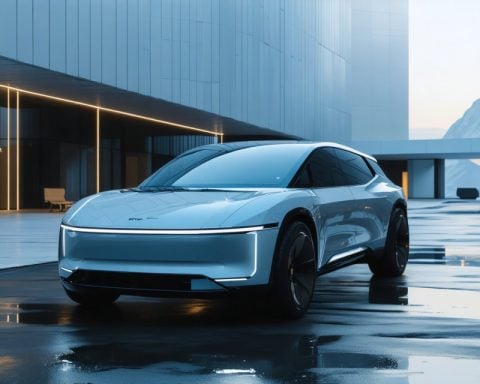Fribourg’s public transport system is set to undergo a significant transformation. The Transport Public Fribourg (TPF) has announced an order for 24 innovative Mercedes eCitaro electric buses, with expected delivery in December 2026. This initial acquisition marks the beginning of a broader commitment to integrate more electric vehicles into the fleet, as TPF plans to acquire between 35 and 183 eCitaro buses over the next five years.
As part of its ambitious environmental strategy, TPF aims to fully decarbonize its bus services by 2033. Currently, only 13% of its fleet consists of battery-electric buses and battery-powered trolleybuses. The newly ordered fleet includes both 18-meter articulated and 12-meter fast-charging buses, designed with a lowerable pantograph for efficient operation. The projected investment for this venture is approximately CHF 20 million (around 21 million euros).
These electric buses will serve a dual purpose, operating in both regional and urban transport networks. TPF officials confirm that the procurement process included thorough assessments and tests to ensure optimal performance on their routes.
In a recent initiative to support this transition, the Fribourg electorate endorsed an equity capital increase of CHF 60 million for TPF, allowing for interest-free investment in cleaner transport solutions. This vital support demonstrates the community’s commitment to sustainable public transport, as TPF’s efforts continue to shape the future of Fribourg’s mobility landscape.
Fribourg Transforms Public Transport: A Leap Towards Sustainability with Electric Buses
Overview of Fribourg’s Public Transport Transformation
Fribourg’s public transport system is on the verge of a major overhaul with the introduction of 24 state-of-the-art Mercedes eCitaro electric buses. Set to be delivered by December 2026, this initial order is just the start of Transport Public Fribourg’s (TPF) ambitious plan to enhance its fleet with electric vehicles. Over the next five years, TPF aims to acquire between 35 to 183 additional eCitaro buses as part of a broader strategy to promote cleaner public transit options.
Commitment to Sustainability
TPF has set an ambitious goal of achieving a fully decarbonized bus fleet by 2033. This commitment comes at a time when only 13% of the existing fleet comprises battery-electric buses and battery-powered trolleybuses. The upcoming expansion with these new electric buses comprises both 18-meter articulated and 12-meter fast-charging models, which feature a lowerable pantograph designed for efficient charging and operation.
Investment and Community Support
The sustainability initiative received a substantial boost when Fribourg’s electorate approved an equity capital increase of CHF 60 million (approximately 63 million euros) for TPF. This funding enables TPF to invest in cleaner transport solutions interest-free, showcasing the community’s overwhelming support for sustainable public transportation.
Key Features of the New eCitaro Buses
– Articulated and Fast-Charging Models: The fleet will include both 18-meter articulated buses for higher passenger volumes and 12-meter models designed for quick refueling.
– Efficient Charging Technology: The buses are equipped with a lowerable pantograph, facilitating efficient charging during short stops.
– Environmental Impact: By increasing the proportion of electric buses, TPF aims to significantly reduce greenhouse gas emissions in line with its decarbonization goals.
Use Cases
The new electric buses will primarily serve Fribourg’s urban and regional transport networks, ensuring that all residents have access to eco-friendly public transit options. This initiative is likely to attract more commuters, reduce traffic congestion, and foster a greener urban environment.
Limitations
While the transition to electric buses represents a significant step, challenges remain. The reliance on battery technology raises concerns regarding battery lifespans, recycling, and the infrastructure necessary for charging. TPF will need to address these factors as it implements the electric bus program.
Market Analysis and Future Trends
As urban areas globally shift towards electrification of public transit, Fribourg’s initiatives are representative of a broader trend in sustainable mobility. Other regions may look to Fribourg as a model for integrating electric public transport solutions, especially in response to increasing environmental regulations and societal demands for cleaner air and reduced carbon footprints.
Conclusion
Fribourg’s initiative to incorporate Mercedes eCitaro electric buses into its public transport system not only enhances transit efficiency but also serves a crucial role in the region’s sustainability efforts. With strong community support and a clear roadmap, TPF is setting a precedent for eco-friendly public transport that other municipalities may soon follow.
For more insights into sustainable transportation solutions, visit TPF’s main website.


















